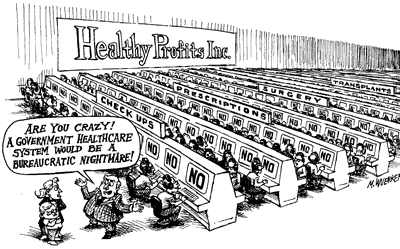- Community
-
Programs
- Schools
-
Careers
- RN Specialties
- Best RN Jobs and Salaries
- Aesthetic Nurse
- Nursing Informatics
- Nurse Case Manager
- NICU Nurse
- Forensic Nurse
- Labor and Delivery Nurse
- Psychiatric Nurse
- Pediatric Nurse
- Travel Nurse
- Telemetry Nurse
- Dermatology Nurse
- Nurse Practitioner
- Best NP Jobs and Salaries
- Family NP (FNP)
- Pediatric NP
- Neonatal NP
- Oncology NP
- Acute Care NP
- Aesthetic NP
- Women's Health NP
- Adult-Gerontology NP
- Orthopedic NP
- Emergency NP
- Psychiatric-Mental Health NP (PMHNP)
- APRN
- Nurse Educator
- Nurse Administrator
- Certified Nurse Midwife (CNM)
- Clinical Nurse Specialist (CNS)
- Certified Registered Nurse Anesthetist (CRNA)
- Resources
- Education



ZASHAGALKA, RN
3,322 Posts
http://www.time.com/time/health/article/0,8599,1808049,00.html
The Value of a Human Life: $129,000
Turns out, that's the value of a human life NOW, under current Medicare rules. However:
"In theory, a year of human life is priceless. In reality, it's worth $50,000."
"Zenios's conclusions arrive amidst mounting debate over whether Medicare, the U.S. government health plan for seniors, ought to use cost-effectiveness analysis in determining coverage of procedures. Nearly all other industrial nations — including Canada, Britain and the Netherlands — ration health care based on cost-effectiveness and the $50,000 threshold. . . Such a move would mean that "if the incremental cost of a new technology was more than the threshold," Zenios says, "then the recommendation would be that Medicare not cover that new technology."
If it costs more than 50k, then you don't need it. The government says so. THIS is 'universal healthcare'. England goes ONE step further. If the government says no, and you do it anyway, then the gov't revokes your health care because it's 'unfair' for you to go beyond what the average person gets. And now comes new considerations for no longer covering smokers and the obese.
How much is a year of healthy living worth to you? Priceless? Well, that's your opinion.
~faith,
Timothy.